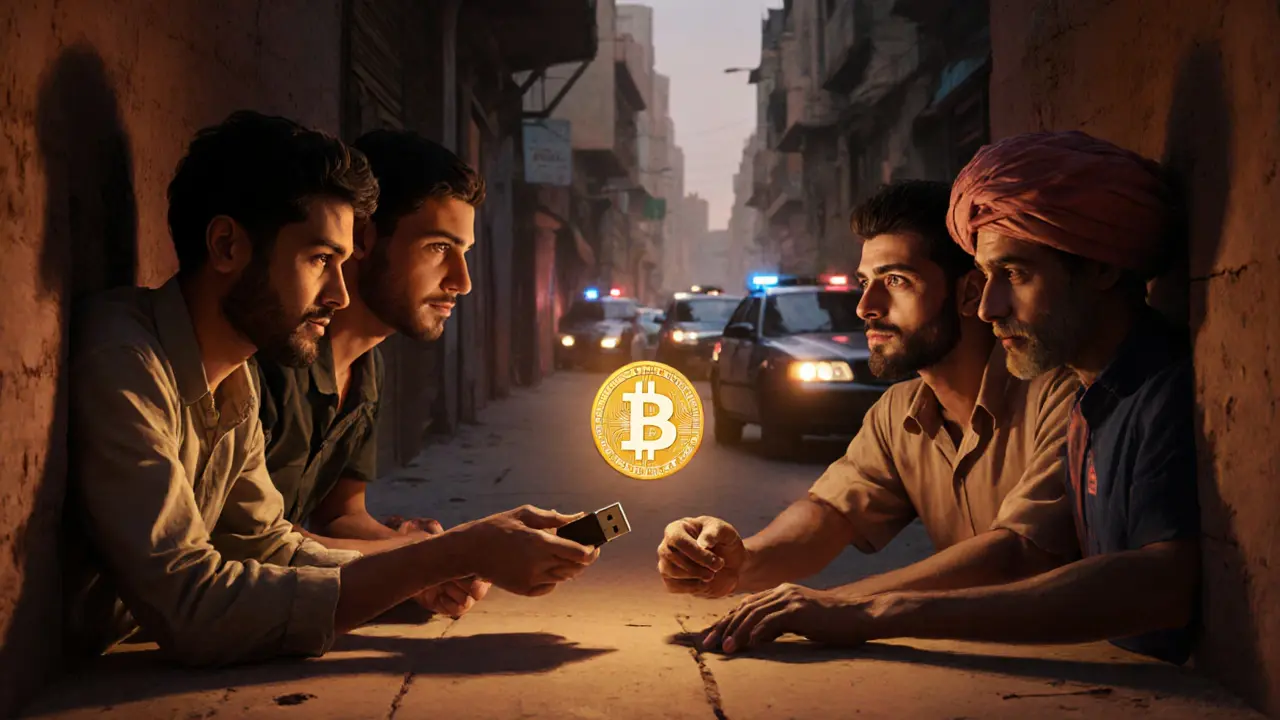Crypto in Egypt: Regulations, Risks, and Real-World Use
When people talk about crypto in Egypt, the use of digital currencies like Bitcoin and Ethereum by individuals and businesses within Egypt’s legal and economic framework. Also known as digital currency adoption in Egypt, it’s not about speculation—it’s about survival for many. With inflation eating away at the Egyptian pound and banks limiting access to foreign currency, crypto isn’t a luxury. It’s a lifeline.
That doesn’t mean it’s easy. The Central Bank of Egypt doesn’t recognize crypto as legal tender, and banks block transactions linked to exchanges. But people still find ways. Some use peer-to-peer platforms like Paxful or LocalBitcoins to buy Bitcoin with cash. Others trade through offshore exchanges that don’t verify location—often with VPNs and anonymous payment methods. The Egyptian crypto regulations, the unofficial rules and enforcement actions taken by government bodies toward cryptocurrency use are vague, but enforcement is real. In 2023, authorities froze accounts tied to crypto trading and warned that using unlicensed platforms could lead to fines or worse.
What’s surprising is how widely crypto is used in daily life. Freelancers get paid in USDT to avoid currency controls. Small businesses accept Bitcoin for imports. Even in rural areas, people use crypto to send money home—faster and cheaper than Western Union. And while major exchanges like Binance and Coinbase don’t serve Egypt directly, local traders rely on decentralized platforms and Telegram groups to swap tokens. The cryptocurrency adoption Egypt, the real-world usage of digital assets by Egyptian citizens for payments, savings, and remittances is growing quietly, not loudly.
There’s a big gap between what’s legal and what’s practical. You won’t find a licensed crypto exchange operating openly in Cairo. But you’ll find people trading on Telegram, using P2P apps, or even buying crypto through local shops that accept cash. The crypto exchanges Egypt, the platforms and methods Egyptians use to buy, sell, or trade digital assets despite regulatory barriers aren’t the big names you see in the U.S. or Europe—they’re the hidden networks that keep the system alive.
Security is another issue. Without clear rules, scams run wild. Fake airdrops, fake wallets, and phishing sites target new users who don’t know how to verify a project. Many lost savings to tokens like CHIHUA or NIHAO—projects with no team, no code, and no future. That’s why understanding the basics—like how to store crypto safely, how to spot a scam, and why you should never share your seed phrase—is more important than chasing high APYs.
And it’s not just about money. Blockchain tech is creeping into other areas too. Some startups are using smart contracts for land records. Others are testing tokenized vouchers for food aid. The blockchain Egypt, the application of distributed ledger technology for public services, supply chains, and financial inclusion in Egypt is still small, but it’s real. And it’s not driven by investors—it’s driven by people who need solutions.
What you’ll find below isn’t a list of the best exchanges to use in Egypt. It’s a collection of real stories, warnings, and breakdowns from people who’ve been there. You’ll see how crypto seizures work in places with weak oversight, why privacy coins matter when your bank watches every transaction, and how a mining ban in Angola shows what could happen here if energy shortages get worse. This isn’t theory. It’s survival. And if you’re trying to navigate crypto in Egypt, you need to know what’s actually working—and what’s going to cost you everything.
3 Million Crypto Holders in Egypt Despite Complete Ban: The Truth Behind the Numbers
Despite Egypt's complete legal ban on cryptocurrency, millions continue to hold and use digital assets. Here's why the ban isn't working-and what's really driving crypto adoption in the country.
